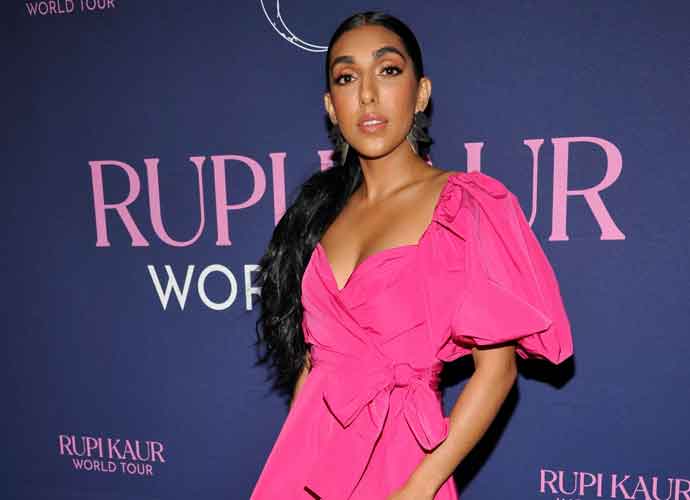VIDEO EXCLUSIVE: Rupi Kaur On Why Her Poetry Resonates
Milk and Honey author Rupi Kaur is known for popularizing poetry for the younger generation with poems that serve as commentary on women’s rights, experiences as an immigrant, genocide, sexual assault and abuse.
Kaur recently sat in the hot seat with uInterview founder Erik Meers to discuss the reactions to her poetry and why it resonates.
> GET TICKETS FOR RUPI KAUR TOUR NOW!
“Even when I performed my poems in my city growing up, some people were highly uncomfortable,” Kaur revealed. “Some people loved it. Dudes were like, ‘Oh she’s so aggressive, why can’t she just write love poems?’ For a minute, I was like, ‘Why can’t I just write love poems? Let me try that.’ Then I was like, ‘There are so many love poems and if I’m not writing about this, then who’s going to do it?’ So then I continued to write about myself and focus on the issues that were speaking to me. One thing led to another, I self-published and that self-published book went on to sell millions of copies and they said ‘Write another book!’ I somehow managed to do that. Now, I feel like I’m in a more secure and confident place than when I was writing that second book. I wrote it in my early 20s and there’s so much going on at that time … so many self-doubts and on top of that you’re constantly trying to figure out how you’re going to create another New York Times Bestseller.”
Kaur revolutionized poetry in a society where much of the younger generation saw it as stuffy and old. Though she writes longer five-minute pieces that she performs regularly, she has also utilized Instagram, where she has 4.5 million followers, to release bite-size poetry. She feels that the topics she addresses allow her audience to resonate with her writing.
“These were the things my friends and I talked about all the time. I never thought it was going to be as big as it was. I didn’t grow up reading a book by someone who looked like me or poetry that was easy to understand and feel in my body. When I read poetry growing up … it reminded me of English class and using literary devices to find the meaning. I was never interested in writing that. I was interested in taking giant experiences and feelings and figuring out how to take these puzzle pieces and create a sort of picture that makes people’s, makes my stomach turn. That’s how I know when a poem is done – when I can read it to myself and my stomach flips in my body. At the time, poetry wasn’t as big then as it is today, a lot of people related to it.”
Purchase tickets to see Kaur on her World Tour or preorder her new book Healing Through Words, which will be available on September 27.
RELATED ARTICLES
Get the most-revealing celebrity conversations with the uInterview podcast!









Leave a comment